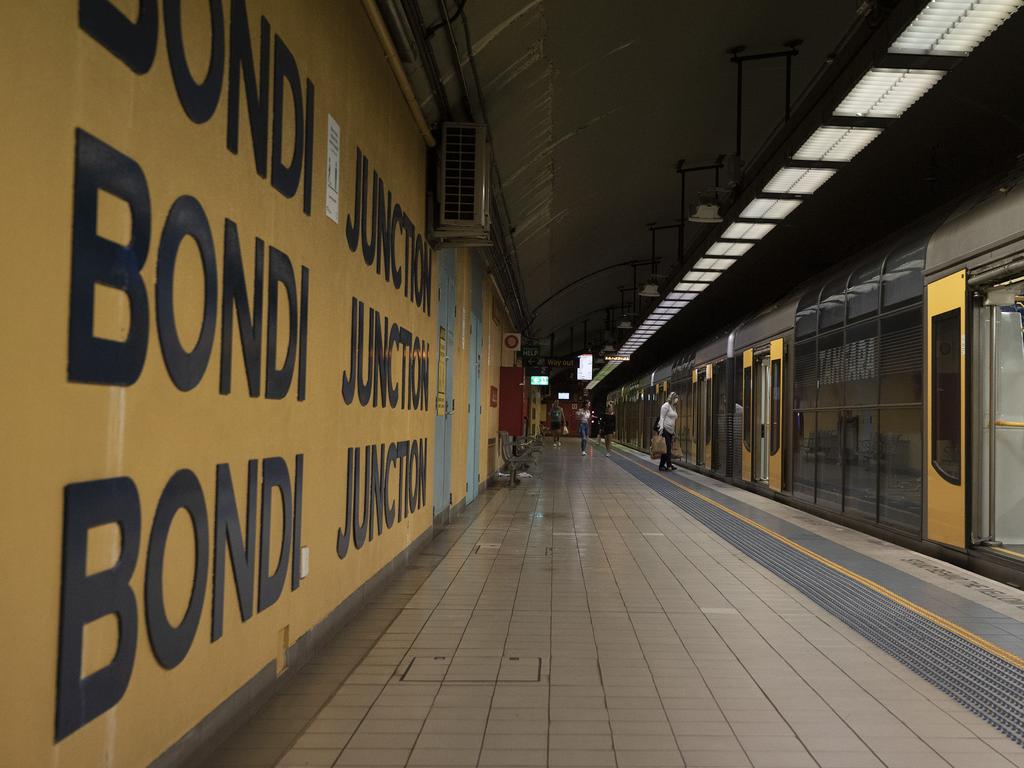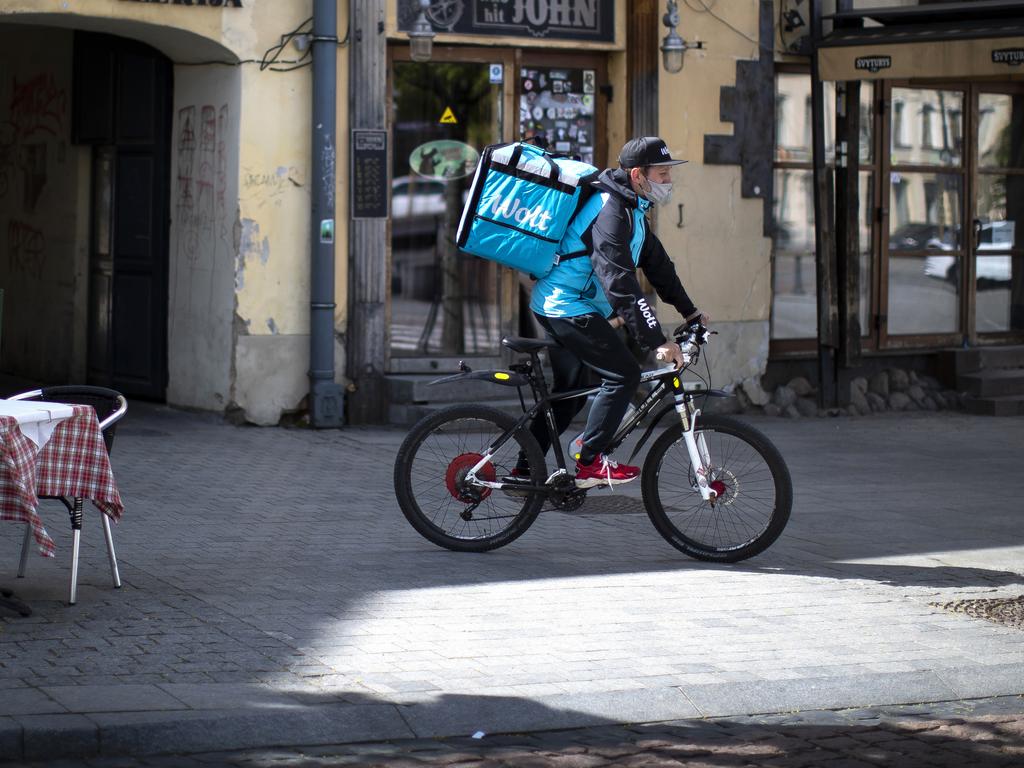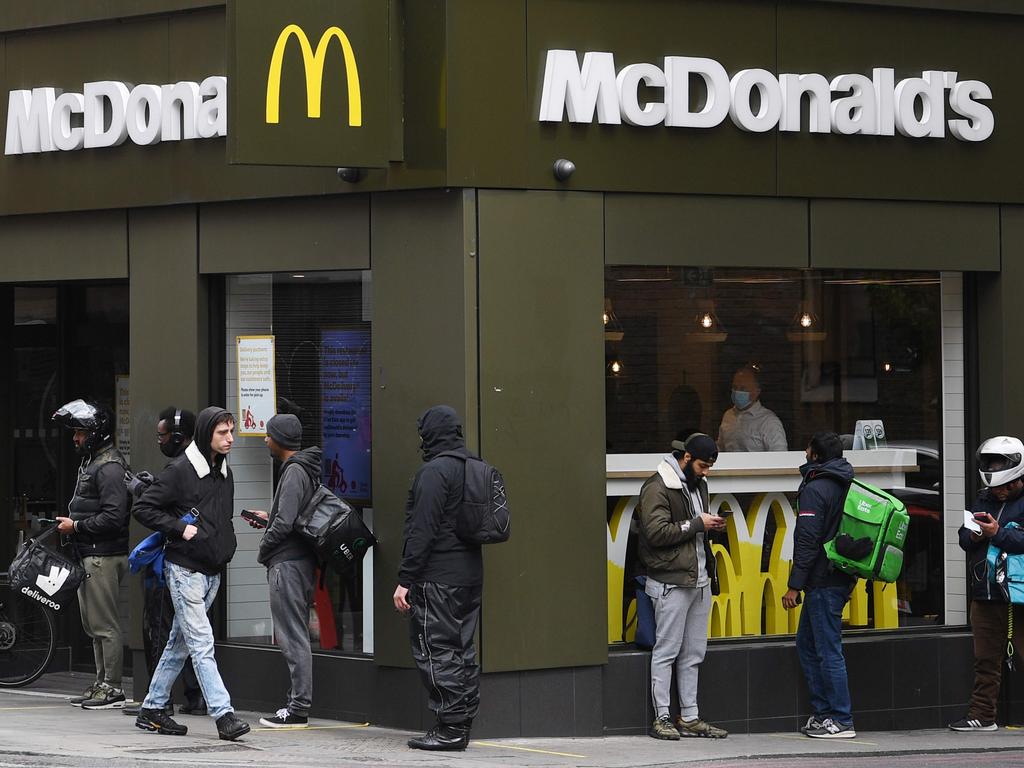Experts weigh in on coronavirus superspreaders as Australia prepares to reopen
Coronavirus will continue to spread around Australia as restrictions ease. This is who experts say are the most likely to be spreaders.
We can all keep our distance in a new-look, post-lockdown Australia, right?
It might actually be harder than you think. Specifically, it might be hard to keep your distance from so-called “superspreaders” – those among us who work in professions that put them in contact with large numbers of people every day.
Think supermarket workers, face-to-face shop front staff, healthcare workers, Uber drivers, delivery drivers.
Just this week, a single delivery driver who was asymptomatic but positive for coronavirus managed to shut down not one but 12 McDonald’s restaurants in Melbourne.
It is a pattern we are likely to see again and again as Australia’s leaders attempt to restart the economy in the middle of the pandemic.
Victoria’s leaders have one possible solution – target specific at-risk industries for large-scale testing.
Related: Follow the latest coronavirus updates

Professor Catherine Bennett from Deakin University said it is a logical next step.
“Delivery drivers are offloading. There is some exertion,” she told The Age.
“Other people might get in the truck with them to help get things out.”
Epidemiologist Professor Gerry FitzGerald from the Queensland University of Technology told news.com.au: “There is no precise definition in epidemiological terms of a superspreader,” but they could loosely be defined as “someone who is more likely to spread the illness”.
He said several contributors would increase a person’s likelihood of spreading the virus.
One factor typically associated with virus superspreader, according to Prof FitzGerald, is “the behaviour and extent of social interaction of the individual”.
RELATED: First use of COVIDSafe tracing app
RELATED: Super-spreader event is stark reminder
But COVID-19 isn’t your average virus.
“For influenza, for example, children generally are superspreaders because they lack social distancing and personal hygiene standards. As you will be aware this is less so with COVID-19,” he said.
“Anyone with close personal interaction with multiple other people are more likely to spread the virus than those with limited interaction. I could thus imagine anyone in face-to-face shop front environments or personal care and health services could be a higher risk.”

He urged workers in those industries to take seriously their responsibility to the rest of the community.
“Obviously all of these people can implement as much social distancing as possible or practice enhanced infection control as a way of minimising the risk even further.”
His colleague, Professor of Epidemiology Philip Baker, agreed.
“Key messages of prevention are social distancing, hand washing, cough management such as coughing into a sleeve and not one’s hand and stay away if you are unwell,” he said.
But how successful will Australia be at fighting the virus if we depend on everybody doing the right thing all of the time?
As Australia’s death toll climbed to 100 with the death of a 93-year-old female resident at Sydney’s Newmarch House nursing home, authorities urged Australians to remain vigilant.
“This tragic toll reminds us that even as Australian states and territories move towards easing of restrictions, the threat of this virus remains,” Health Minister Greg Hunt said.

“The government has outlined a clear pathway to recovery, but Australians everywhere should stay alert, follow physical distancing guidelines and look out for each other.”
Four nursing homes in Melbourne have gone into lockdown after a resident from each were tested for the virus.
Three have returned positive results while results for a fourth are pending.
Individual states and territories are largely governing themselves with varying levels of success.
RELATED: How our holidays will change
RELATED: Professor ‘floored’ by severity of disease
New case numbers remain relatively low, forcing premiers and chief ministers to seriously consider the merits of reopening domestic borders.
The flashpoint of the current debate is the border between Queensland and NSW. Queensland Premier Annastacia Palaszczuk on Monday suggested borders would remain closed until September despite the urging of NSW Premier Gladys Berejiklian to allow interstate travel.
Victorian Premier Daniel Andrews is open to the idea but South Australian Premier Steven Marshall won’t budge until other states and territories “perform” and eradicate COVID-19 community transmissions.
A big part of that will be identifying and testing those most likely to spread the virus around.




